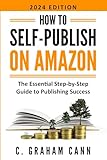The Elements of Appeal
There is one quality we always find in really great fiction. The stories may be poorly constructed, to some extent poorly written; plot in the usual sense of the term may be wholly absent; the story may run from five hundred words to five thousand ; it may break any of a hundred rules; but if it has this one quality, editors seem willing to take it, the public seems willing to read it, and immortality always hovers around it. The stories that have endured, that have come down through generations, the stories that grip and hold, that tighten the heart strings- in these there is one quality that stands out above all, and that quality is - appeal.

There is one quality we always find in really great fiction. The stories may be poorly constructed, to some extent poorly written; plot in the usual sense of the term may be wholly absent; the story may run from five hundred words to five thousand ; it may break any of a hundred rules ; but if it has this one quality, editors seem willing to take it, the public seems willing to read it, and immortality always hovers around it. The stories that have endured, that have come down through generations, the stories that grip and hold, that tighten the heart strings— in these there is one quality that stands out above all, and that quality is—appeal. Sometimes it is called human interest, heart interest, story interest; but those terms are more or less vague and indefinite, as every writer knows who is vainly endeavoring to impale them with his pen. In reality, human interest, heart interest, is simply appeal.
Without it a story may sell, and thousands do—the bare story of mystery in which puppets play a fascinating game, and others of like nature. Such stories may sell without it; but stories with it stand the better chance. Like everything else that is valuable in life, it defies detailed analysis; but it admits of dissection to some extent into its elements. And the first great element of appeal is
Sacrifice
To handle this element with a pen is like trying to follow a moth in a dimly lighted room; it is here and there, and nowhere. But we all know what sacrifice is. It enters into all great and noble deeds ; it is part and parcel of big souls and big hearts. Hearing a tale of a noble sacrifice catches and stills the very heart beats. The papers are full of crude little notes of some one's sacrifice for a loved one—a boy who eagerly gives his own red life blood to save the life of his mother; the workman who shatters an arm to stay whirling machinery to save a fellow workman's life; and so it runs on.
Life is full of it—this coarse, sordid, everyday life of ours —the life that any writer to win the best success must let sink and soak into his heart and leak out through his pen point— the world-old sacrifice of mother for child, of friend for friend, of foe for foe. Sacrifice is the great understream that flows beneath human existence; and when a writer taps it, he touches what all men know, and when a writer touches what all men know, he comes pretty near hitting what the editors call human interest. Through sacrifice lies for the writer, more than through any other path perhaps, the way to universality of appeal.
How is he to flood it through his work? Here the pen of the analyst falters. If one could build a story as one builds a brick house, all would be easy—a block of this, a block of that, measured and fitted. But such is not the way in the realm of the writer. The only way- that can be pointed out is by a knowledge of life, by sympathy with it, by recognition of the fact and its right appreciation that men all over the world are living and dying for each other.
In a word, put sacrifice into a story and you touch the wide, wide world, for the world understands. The second element is
Trust
Under this heading may be grouped friendship and faith. Equal almost with sacrifice is the appeal that lies in the unfaltering, unquestioning trust and faith in man for man; the faith that believes in another, though all the world points its finger in Scorn. This is an element that sells thousands of stories every year, and this alone. Perhaps better than attempted analysis is illustration: the calm, unworried trust of a woman in her lover; of a friend in a friend; of a mother in a son; or a son in a mother; and these are capable of infinite variation. To enumerate them all is an impossibility; these may point the way.
There is something in this element of trust, of faith, that is pregnant with pathos, more so, perhaps than is sacrifice. The world pities the deluded fool who believes implicitly in his trinket of an hour. In a story written by Albert Bigelow Paine, entitled "The Call of the Mountains," the theme is that of a little mountain lad's unquestioning belief in his outlaw friend; and the pathos enters when the attempt is made to shatter that belief. The story won wide recognition, for it had in it nothing more or less than appeal—appeal resulting from the element of trust.
In a word, this spells another way to acceptance; for though the world may smile at some simple, unquestioning faith, sometimes the smile is tinged with tears; and where tears and smiles mingle the heart is won.
The third element is that of
Hope
This is another element that enters into all human life. Strike hope from the world, and the next morning's sun would shine on a desert. Here again if a writer can work into his story this element, he will find, as nearly as men can find it— universal appeal. Life in the last analysis is simply one continuous hope—hope for happiness, for something in the future, for something that lies over the hills. Hope shattered is one of the most pathetic things in human existence. And the man who makes use of it rightly, touches the heart of men to the very quick.
This element of hope can be fairly well illustrated in Ernest Seton-Thompson's story of the homing pigeon, which, released many miles away from its home, flies unwaveringly on, through vicissitudes and obstacles over the weary miles, and dies in sight of home.
Hope is a big vital factor in the world, and it is just as big and vital in a story.The fourth element is that of
Humility
Under this head we include kindness, for where humility is found, there is usually kindness. A kind act done simply and unostentatiously has in it a good deal of appeal, though by no means does it carry equal dramatic weight with the other elements that have been mentioned above; but it is an element entirely worthy of consideration.
Appeal always lies in a humble, sincere character acting from kindly motives—probably it does so, because men see all around them those different in character and acting from different motives. The story of a change in a character from arrogance, crabbedness, to that of humility always has appeal. The men with whom we associate humility and kindness are the men we love; and we love them in the story world as much as we do in the living world.
The last element, for the lack of a better word, we term
Redemption
Every great story marks change in character, and the usual change wherein appeal lies is in the lifting of a character to a higher level. The world loves to see a man, despised, condemned, down-trodden, rise in might of manhood and strength. There is something in the story of a man climbing from the depths to the heights that fascinates and holds all men. This truth must be obvious. And here the writer may listen and take heed. The redeeming of manhood, of womanhood, of childhood is going on all over the land; men are shaking off shackles forged by themselves and others, and are proving the manhood in them.
There is another phase to this element. Here we have the case of a man who works quietly on, unknown, unheralded, perhaps working in such a way that others secure the glory and the reward; suddenly, as it does in the long run, change enters, and he comes to his own. In this way we get the double appeal —the appeal of the theme itself, and the appeal that lies in] proving the belief of men that after all the man in the right always wins.This redeeming of character is perhaps the primal element in all good fiction, for in reality in it lie the fundamental things that appeal to all men.
In conclusion, one must say that these elements that have been touched upon above are crude signposts, weather beaten, tipsy, with the lettering faded, but perhaps they may give some idea of direction that will help. Many, many are the stories into which these elements have gone to a reader's pleasure and a writer's reward; and the last conclusive proof that such is the case is the current magazines.
Read These Next
Five Habits of Successful Authors
While every writer has a different way of approaching their craft, there are some habits that many, if not most, successful authors engage in that contribute to their success. By incorporating these habits into your daily practices, you can increase your chance of success and personal growth in the writing industry.
Aim Your Story at the National News Media
The PR Rainmaker knows: For maximum success, always start at the top.
The Dangerous Side of Children’s Books
As an author, if you’re inspired to delve into the slightly dangerous, dark or subversive corners of childhood with your books, feel free to do so. Don’t limit yourself to all that’s bright, safe and up to code.







 Self-Publishing For Dummies (For Dummies: Learning Made Easy)
Self-Publishing For Dummies (For Dummies: Learning Made Easy) Self Publishing To Amazon KDP In 2023 - A Beginners Guide To Selling E-books, Audiobooks & Paperbacks On Amazon, Audible & Beyond
Self Publishing To Amazon KDP In 2023 - A Beginners Guide To Selling E-books, Audiobooks & Paperbacks On Amazon, Audible & Beyond How to Successfully Self-Publish a Book on Amazon & Audible: How to Build a Profitable Self-Publishing Business
How to Successfully Self-Publish a Book on Amazon & Audible: How to Build a Profitable Self-Publishing Business Write. Publish. Repeat. (The No-Luck-Required Guide to Self-Publishing Success)
Write. Publish. Repeat. (The No-Luck-Required Guide to Self-Publishing Success) Self-Publishing: The Secret Guide To Becoming A Best Seller (Self Publishing Disruption Book 2)
Self-Publishing: The Secret Guide To Becoming A Best Seller (Self Publishing Disruption Book 2) How to Self-Publish Your Book: A Complete Guide to Writing, Editing, Marketing & Selling Your Own Book
How to Self-Publish Your Book: A Complete Guide to Writing, Editing, Marketing & Selling Your Own Book Self Publishing To Amazon KDP In 2024 - A Beginners Guide To Selling E-books, Audiobooks & Paperbacks On Amazon, Audible & Beyond
Self Publishing To Amazon KDP In 2024 - A Beginners Guide To Selling E-books, Audiobooks & Paperbacks On Amazon, Audible & Beyond How to Self-Publish on Amazon: The Essential Step-by-Step Guide to Publishing Success
How to Self-Publish on Amazon: The Essential Step-by-Step Guide to Publishing Success Successful Self-Publishing: How to self-publish and market your book in ebook and print (Creative Business Books for Writers and Authors)
Successful Self-Publishing: How to self-publish and market your book in ebook and print (Creative Business Books for Writers and Authors) 14 Steps to Self-Publishing a Book
14 Steps to Self-Publishing a Book